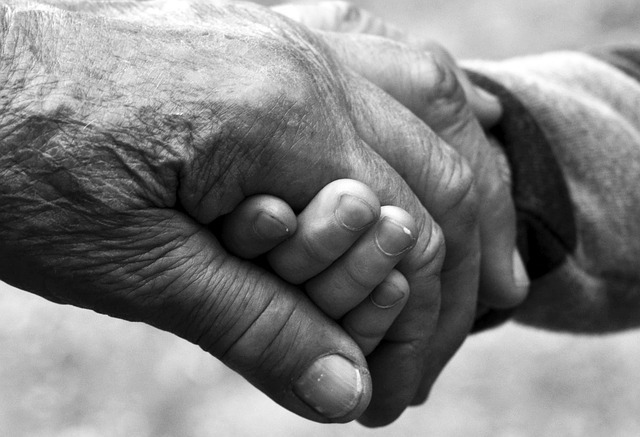MyCHIPs Digital Money

Life in a MyCHIPs Economy
Many different proposals have been made for implementing a variety of different kinds of new money. But very few have materialized in any serious way.
Perhaps the most successful so far is Bitcoin, a system that is based mostly on speculation, rewards early participants, and encourages hoarding rather than exchange. And that should teach us an important lesson: In the end, most people will make decisions they feel are in their best personal interest.
So in order to be successful, a new money system has to have some clear advantage for individual participants, over the present system. It is not enough to have only social benefits, unless you plan to implement the system by social force, or government regulation. When the basic economic decision points are made by individual parties, the benefits must also accrue at that same level.
Having said that, there are still a number of positive effects MyCHIPs will have at the societal level. One mentioned above, is by changing the units of money to represent our time, it reinforces our understanding that things, or assets don’t usually just pop into existence all by themselves. Rather, people have to work productively to make those things. Because of this, the value of those things is directly proportional to the amount of work required to produce them.
This leads us to a more clear understanding of what money truly is. In a very real sense, it is “blood, sweat, and tears.” It is human heart beats, hours and minutes of productive effort. In other words, it doesn’t come from nothing–it comes from people–you, and others. We should treat it with the reverence it deserves.
When we play with money, we are playing with the lives, or the living hours, of other human beings. We should not take that lightly.
The next social awareness comes when we recognize that money is debt. And that debt is either backed by the credit of individual working people, the net assets of corporations, or groups of people, or long term assets such as real estate, purchased and constructed by people. Therefore when money is issued against these different types of assets, it will have an accordingly different character.
Some will be very reliable in the short run, but less certain over a long period of time. Other kinds may not be as immediately accessible in the short term, but much more dependable into the future.
Furthermore, as people, we all have a similar life cycle we go through. At very early ages, we are totally dependent. Thankfully, nature causes most parents to want to care for their children until they become capable of taking care of themselves.
As maturing young adults enter society, they have usually not had a chance to accumulate much personal wealth. However, they have a great deal of future potential when considering the asset of their time, their mind and the possibility for combining the two productively.
Most people in middle age have had enough time to accumulate some wealth, assuming they have managed to consume less than they produced since entering the work force. And then later on, we begin to lose our ability for productivity. Eventually, we can become dependent again upon family or society for support, until the time we eventually die.
MyCHIPs lends itself well to the natural economic realities present in the normal life cycle. At an early age, the best asset we have is our future potential. But it would be preferable if we could still own a car and a home, even though we may not have lived long enough to produce what is necessary to have earned them. This makes young people good candidates for borrowing.
By taking on a reasonable debt load, a young person can own a home now, and enjoy all the benefits and pleasures that affords, while paying for the asset over the next 10 or 20 years. By midlife, if a person has worked hard and managed to pay off a home and some other assets, he may also be at the peak of his capacity for productivity. He will have the ability to enjoy a larger proportion of his earning potential and give assistance to children and grandchildren. He will also have a greater capacity to give charitable contributions, and improve conditions in society.
As we enter old age, it would be well if we have accrued a number of assets which can be leveraged, or gradually liquidated, to support our needs for the balance of our lives. This makes older people good candidates to provide credit to the younger people who need it. The relationship is a win-win. In other words, it can form a natural synergy between the young and the old, as opposed to the current win-lose dynamic based on forced taxation and subsidy.
Younger people need credit and they are willing to produce income. Older people have the assets necessary to back credit but they need income. Both sectors can be well served by cooperating through the voluntary trading of credit.
So what happens when we combine the concepts of short-term versus long-term CHIPs, and balance credit between the young and the old: People will naturally recognize, personal and corporate credit is more liquid in the short term but less reliable in the long term. This works as a new batch of human work value is produced each day with people showing up to their jobs. And we can redeem this work by consuming the goods and services those companies produce.
But people can, and do die. And companies eventually go out of business. So CHIPs based on those issuances would require some careful diversification and a layer of insurance in order to have better long-term security. But CHIPs based on real estate, precious metals, and other durable assets are much more reliable in the long term.
So the natural incentives in a CHIPs-based economy are to spend credits of a short-term nature, trading them for the goods and services we actually want and care about. This encourages commerce and allows more opportunity for others to also engage in profitable business activities–in other words, jobs. And when we do want to focus on long-term savings, we will naturally be inclined to store long-term CHIPs, or maybe just the assets themselves.
Said another way, if we are inclined to build wealth, we will tend to do it by gathering things, rather than necessarily money. As capital, those things have their own value, and can even earn us income during our less productive times of life. And in the appropriate time and way, they can be exchanged or leveraged for the money we will need later.
